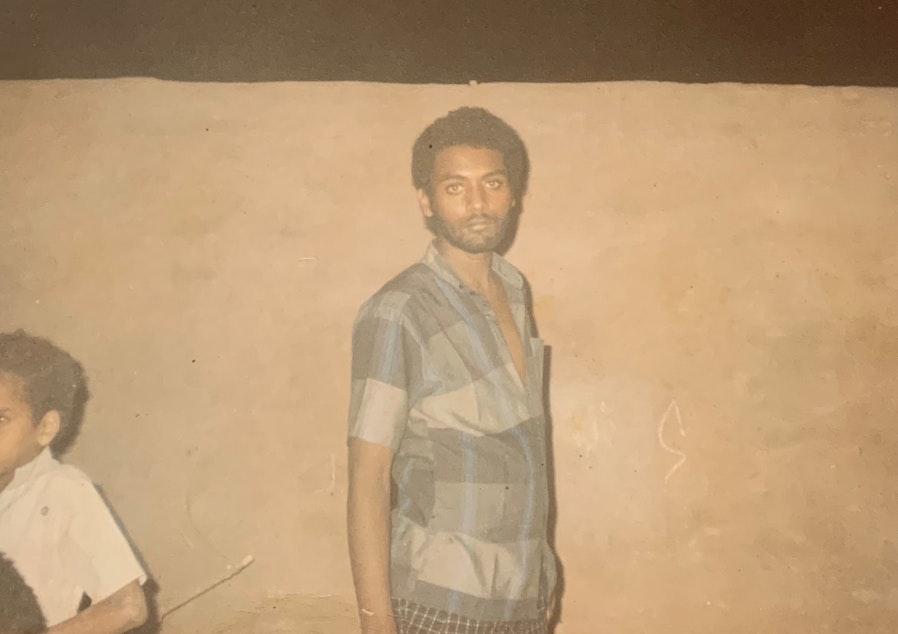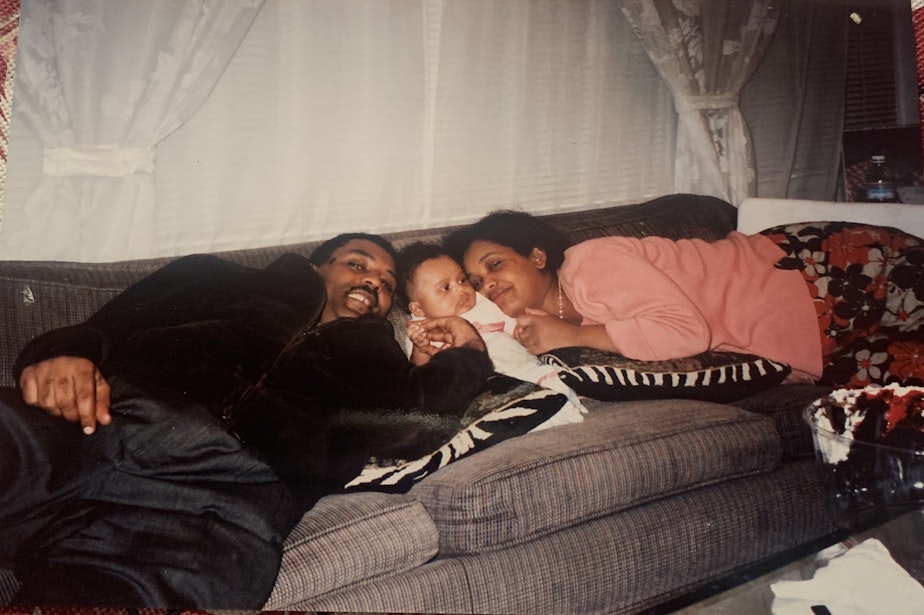At 17 my dad had to choose: leave his family to escape the war, or become a soldier

My dad, Fitsum Habtemichael, was 17 years old when the war between Ethiopia and Eritrea began.
He was given a choice: to escape and to live independently, leaving his family behind, or to remain and become a soldier. So he left.
I talked to my dad about what life was like back home in Ethiopia, and the struggles he faced in order to live his life freely.
Fitsum Habtemichael was happy with his family and friends back in Ethiopia. He had an enjoyable life that included a big support system.
“When I was growing up in Ethiopia,” he remembers, “we play from morning until night, all the neighborhood are watching us. I miss that social life.”
For me, the bits and pieces that my dad shares of what his life was like in Ethiopia as a child are eye-opening. Because it was also a sad experience when he was forced to leave.
When war broke out and my dad left home, he had to walk 15 days without solid food in his system. He survived off of dirty water.
Sponsored
It was over 90 degrees when he crossed the border to Kassala, east of Sudan. He was surrounded by groups of people escaping. The only time they could travel was during the night; this way they’d have cooler temperatures, and they wouldn’t risk being spotted and attacked.
“It was scary,” my dad tells me. “I was young. If Ethiopia they got me, I would be in jail. But Eritrea if they got me, I will be a soldier. If they put me in as one of the soldiers that means I am fighting with my brother, my brother is an Ethiopian soldier. So I was praying every single day and night, how I will escape or get out from here.”
Although scared for his life, Fitsum’s father once told him something motivational: “You have to solve by peace, not by war.” So my dad kept that positive mindset throughout his journey.
There were times he wanted to give up. But he was confident there was a good life ahead of him.
Eventually he made it to Sudan and found family there who provided him with a job and shelter. But unexpectedly my dad got very ill. He couldn’t talk, stand, or take care of himself. “I was sleeping for six months on the bed, because of malaria,” he tells me. “People were thinking ‘this guy won’t stay today and will die tomorrow.’”
Sponsored
Hearing this through my dad’s voice was really hard for me to imagine. Thankfully, he wasn’t alone. He’d been introduced to his cousin when he got to Sudan. Even though they were actually complete strangers, my dad says his cousin stuck by him when he was sick. “He was sacrificing for me a lot of things. He was working, and he didn’t say anything, one word. Still now, I appreciate him.”
After my dad recovered, he spent 10 years of his life in Sudan. Then finally he got news that it was safe for him to return back home to Ethiopia.
He spent three years in Ethiopia. Then the war started again.
This time my dad escaped to Kenya, where he met my mom. They were given the opportunity to move to America and start a fresh life.

Sponsored
I’m about the same age now that my dad was when he first left Ethiopia. And I can’t really imagine it. It took a lot of guts and bravery.
Today my dad is settled and stable. “I’m so happy because I’m close with my kids,” he says. “They know what I need, I know what they need. If I’m not close I don’t know them. So I’m so glad, I’m so happy. That’s a good thing for me.”
This story was created in KUOW's RadioActive Online Radio Journalism Workshop for 15- to 18-year-olds, with production support from Sonya Harris. Edited by Lila Lakehart.
Find RadioActive on Facebook, Twitter, TikTok and Instagram, and on the RadioActive podcast.
Sponsored
Support for KUOW's RadioActive comes from the Bill & Melinda Gates Foundation Discovery Center.



